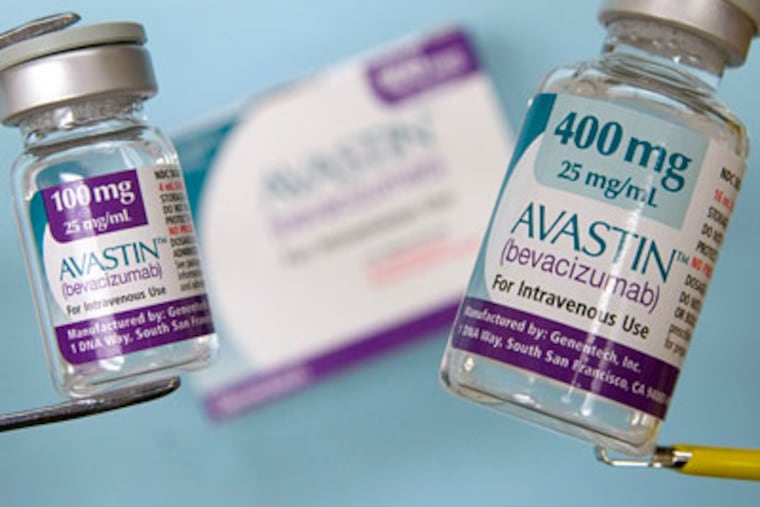FDA disallows Avastin as breast-cancer drug
Avastin is no longer approved for treating metastatic breast cancer because it exposes patients to dangerous side effects without any benefit, the U.S. Food and Drug Administration said Friday.

Avastin is no longer approved for treating metastatic breast cancer because it exposes patients to dangerous side effects without any benefit, the U.S. Food and Drug Administration said Friday.
The FDA noted that Avastin's risks include severely high blood pressure, bleeding, heart attacks, and perforations in such body parts as the nose, stomach, and intestines.
"After reviewing the available studies it is clear that women who take Avastin for metastatic breast cancer risk potentially life-threatening side effects without proof that the use of Avastin will provide a benefit, in terms of delay in tumor growth, that would justify those risks," FDA Commissioner Margaret A. Hamburg said. "Nor is there evidence that use of Avastin will either help them live longer or improve their quality of life."
The American Cancer Society estimates 230,480 women will be diagnosed with invasive breast cancer this year and 39,520 will die.
Avastin is still approved for other cancers, for which the benefits could offset the side effects.
Avastin generated $4.3 billion in sales so far in 2011 for drugmaker Roche, according to Bloomberg News.
Insurers started reviewing reimbursement policies in June after the FDA advisory panel recommended withdrawing approval.
Medicare, the federal government program that provides most of the health insurance for Americans over 65, said it would study the FDA ruling, "but has no immediate plans to change coverage policies."
Independence Blue Cross, in a statement, said, "We will monitor the response to the FDA decision by respected professional organizations and see how their recommendations for treating advanced breast cancer may be revised before making any change to our coverage policy."